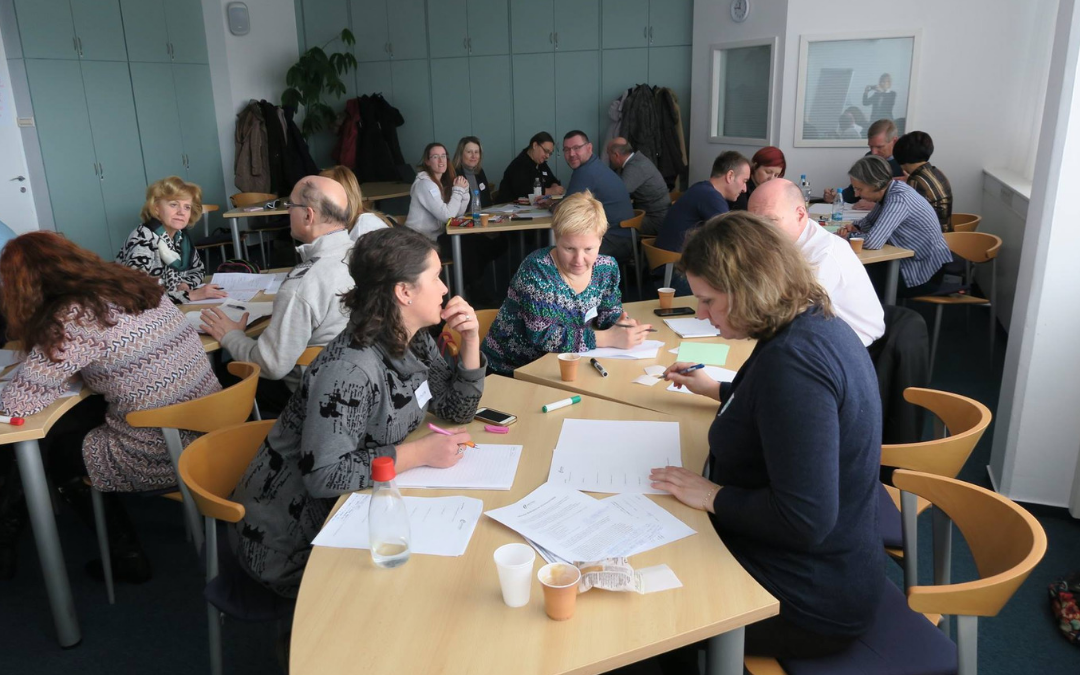The SIAE implements a whole range of educational programmes for individuals, groups, organizations and companies. We are aware that in their pedagogical work, educators often forget about themselves – their career development and personal growth. Both help to preserve and deepen the pedagogical eros.
Accordingly, we have prepared an educational programme on the development of professional identity of adult educator, which is carried out by our external colaborator Sandra Bohinec Gorjak.
Self-reflection and motivation
An adult educator should above all be able to accept himself or herself. Self-reflection is the “inner compass” that enables us to understand what is important to us. It has an invisible power in the educational process, as it can transform ignorance into knowledge, distrust in confidence, uncertainty into independence, passivity in taking initiatives, and enables the adult educator to gain competence to create own professional identity and the professional identity of those who he or she guides in the learning process.
Self-motivation is essential in considering the development of professional identity. When an adult educator develops professional identity through motivational leverage, he or she contributes to the execution of a professional and life mission through own behaviour. Behaviour in accordance with inner feelings and pursuit of own mission enables personal growth, i.e. professional self-realization, and increases the feeling of fulfilment.
What can be gained?
- Take a closer look at the process of the creation and development of professional identity of an adult educator.
- Get familiar with ways that create, maintain and intensify professional satisfaction.
- Ask yourself about your own views, experiences and evaluation of this concept through self-reflection, own experience and values.
Professional identity profoundly affects the individual and society. Adult educators can create the foundation, on which we build and develop our business personality, through a range of personal and professional decision-making. Furthermore, the programme offers a set of effective methods and techniques that enables us to upgrade life skills, such as development of professional identity.
Main topics
- Core definitions of the adult educator’s role through the prism of professional identity;
- Importance of mind-set in formulating reality;
- Wisdom and intuition – their interconnectedness;
- Coping with “difficult events” in professional identity development;
- Five-step technique for creating a “grand vision”;
- Adult educator as his/her own leader and a leader of others (LEADERS model by Deepak Chopra).
Zdenka Birman Forjanič, MSc (Zdenka.birman.forjanic@acs.si), SIAE


